Poetic Practical: The Unrealized Work of Chris Burden
Contributors: Donatien Grau, Yayoi Shionoiri, Sydney Stutterheim, Andie Trainer
284 pages
Gagosian
It’s impossible to think of the Los Angeles art scene without considering Chris Burden, an incisive social commentator who approached artmaking with both childlike wonder and fearless abandon. His now-legendary performance-art pieces from the early 1970s and subsequent 40-year practice in sculpture, installation, video and mixed-media projects have become canonized as some of the most daring, and outright phantastic, innovations in the history of art.
A lavish new book from Gagosian—Poetic Practical: The Unrealized Work of Chris Burden—celebrates Burden’s breadth as it’s never been seen before, with detailed examinations of 67 unrealized projects that existed in various stages of development at the time of his death in 2015. The extensively researched and illustrated book incorporates archival materials from the notebooks Burden painstakingly kept, as well as newly commissioned photographs of the artist’s studio, property and ongoing projects.
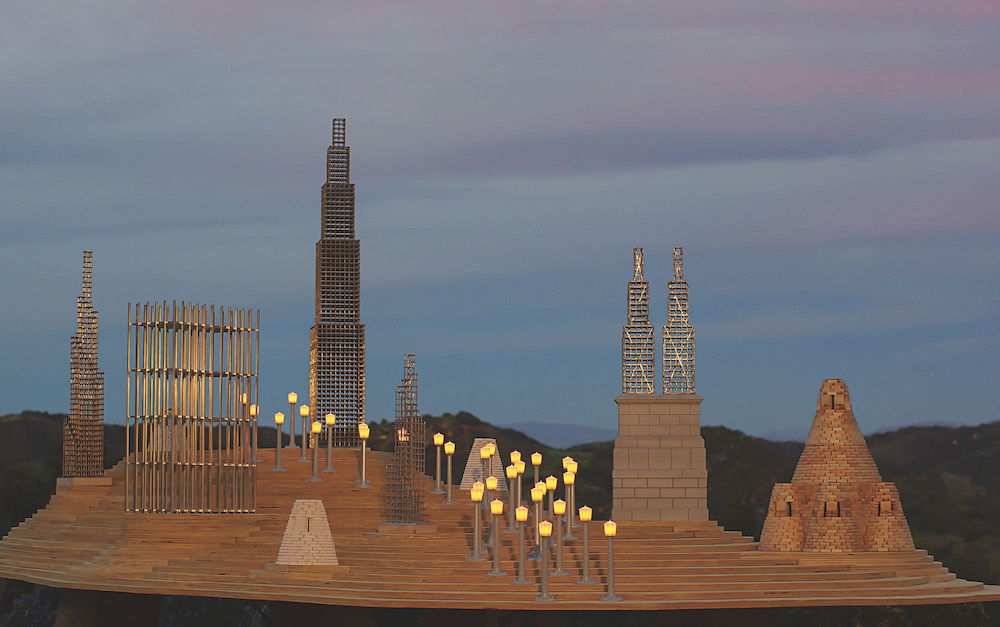
Model for the installation “Xanadu” as proposed to the Los Angeles County Museum of Art, 2008 © 2022 Chris Burden/Licensed by the Chris Burden Estate and Artists Rights Society (ARS), New York, courtesy of Joel Searles and Gagosian.
Because Poetic Practical is based on unfinished gestures and ideas rather than actualized objects, its contributors had to resort to a speculative, forensic approach in its assembly. Some of these unrealized works began as mere stand-alone sketches; others included detailed plans that Burden routinely revisited; and others are evolutions of realized projects that Burden considered not to have reached their final forms.
The book makes it abundantly clear that Burden’s ideas never stopped flowing and that the scope of his vision never stopped growing. One of the most memorable propositions from the book is the drawing for The Ever Burning American Flag, an idea Burden had in 2009 for “a super patriotic flag,” forever ablaze but never consumed, that would hang from every embassy in the world and be marched into battle—a piercingly tongue-in-cheek symbol of American indestructibility and the urge for dominance.
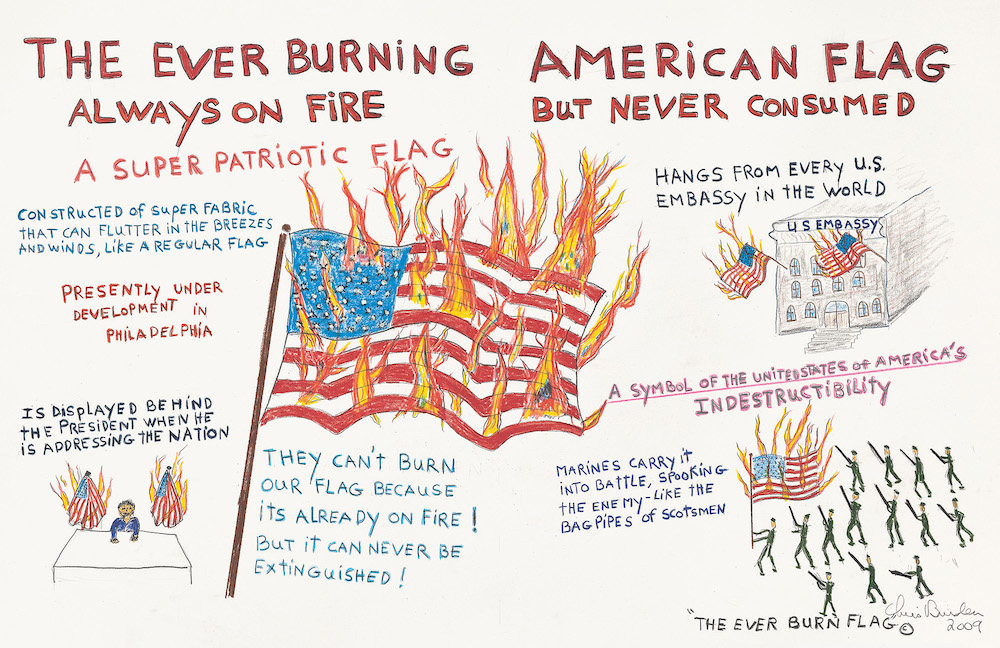
Drawing for “The Ever Burning American Flag,” 2009, © 2022 Chris Burden/Licensed by the Chris Burden Estate and Artists Rights Society (ARS), New York, courtesy of the Chris Burden Estate and Gagosian.
An underlying theme in Burden’s work was examining the systems of power that allows society to function, particularly ones that test the limits of art institutions in how far they will bend to an artist’s will, and what they will sacrifice in the name of art. In what Poetic Practical describes as Burden’s “incomplete magnum opus,” the artist proposed to different institutions several iterations of “Xanadu,” a dreamlike model city built to scale and inhabited by Burden’s monumental urban sculptures. The book bears witness to the fact that Burden was always earnest in his investigations, no matter how improbable his ideas, and took his role as an artist as someone uniquely qualified to speak truth to power very seriously.
The true magic of the book lies in the fact that Burden’s realized and unrealized works alike were all rooted in interrogating the potentiality of outlandish concepts. There’s something undeniably beautiful about the untouchable purity of vision embodied by these unrealized projects—they are unadulterated by physical, financial or practical limitations, free to be envisaged at their fullest potential. In this way, a book like Poetic Practical, dedicated to the presumed boundaries of impossibility and based in abstract pipedreams, is a truly unparalleled feat—and the most uniquely fitting tribute to Burden’s legacy. The book is a stunning achievement that opens the door for contemporary artists to engage with Burden’s unrealized ideas, and extends rather than upends his status as the art world’s bad-boy daredevil.

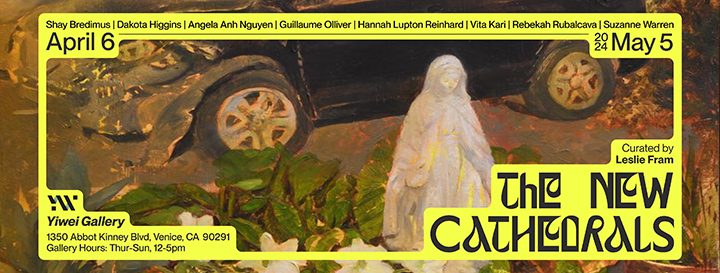



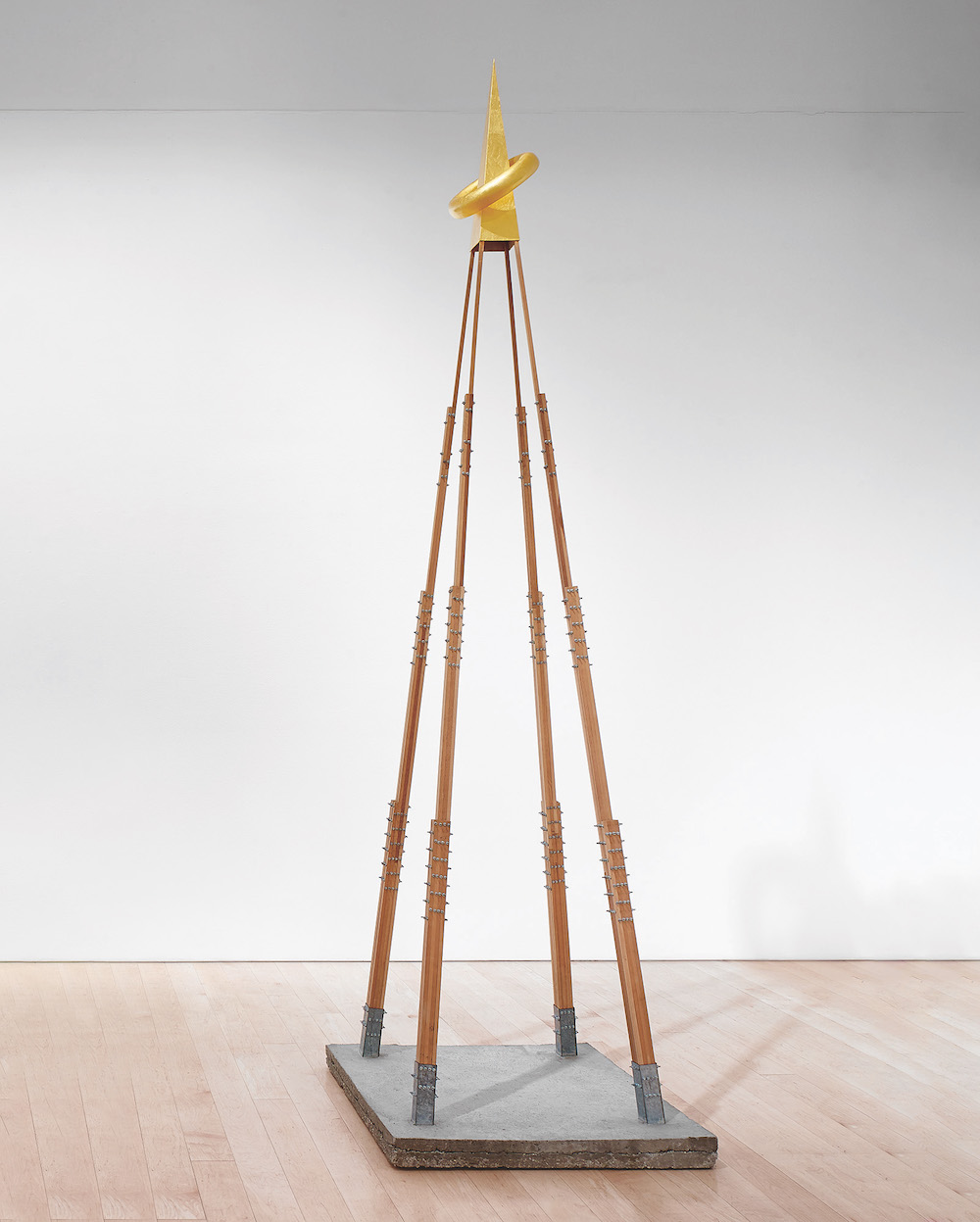
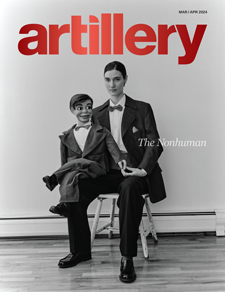

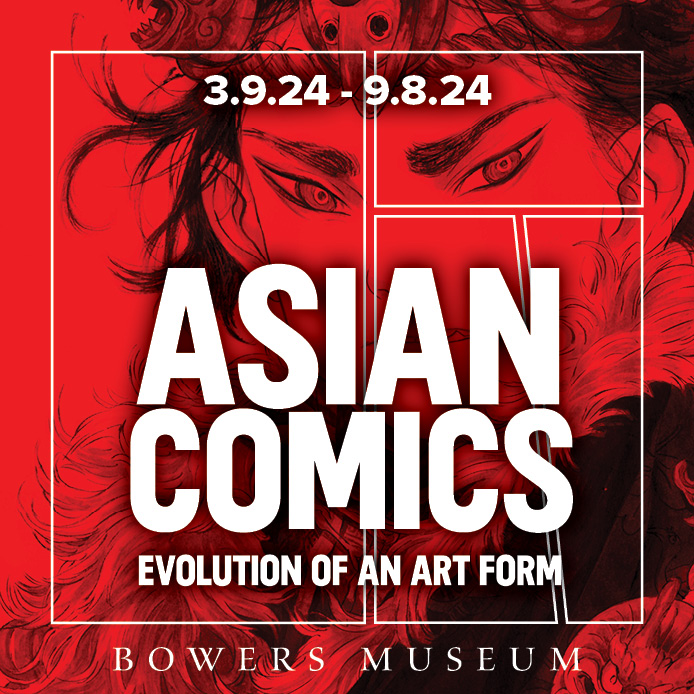

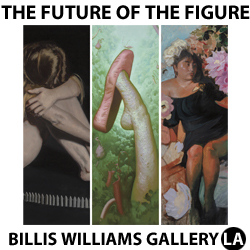
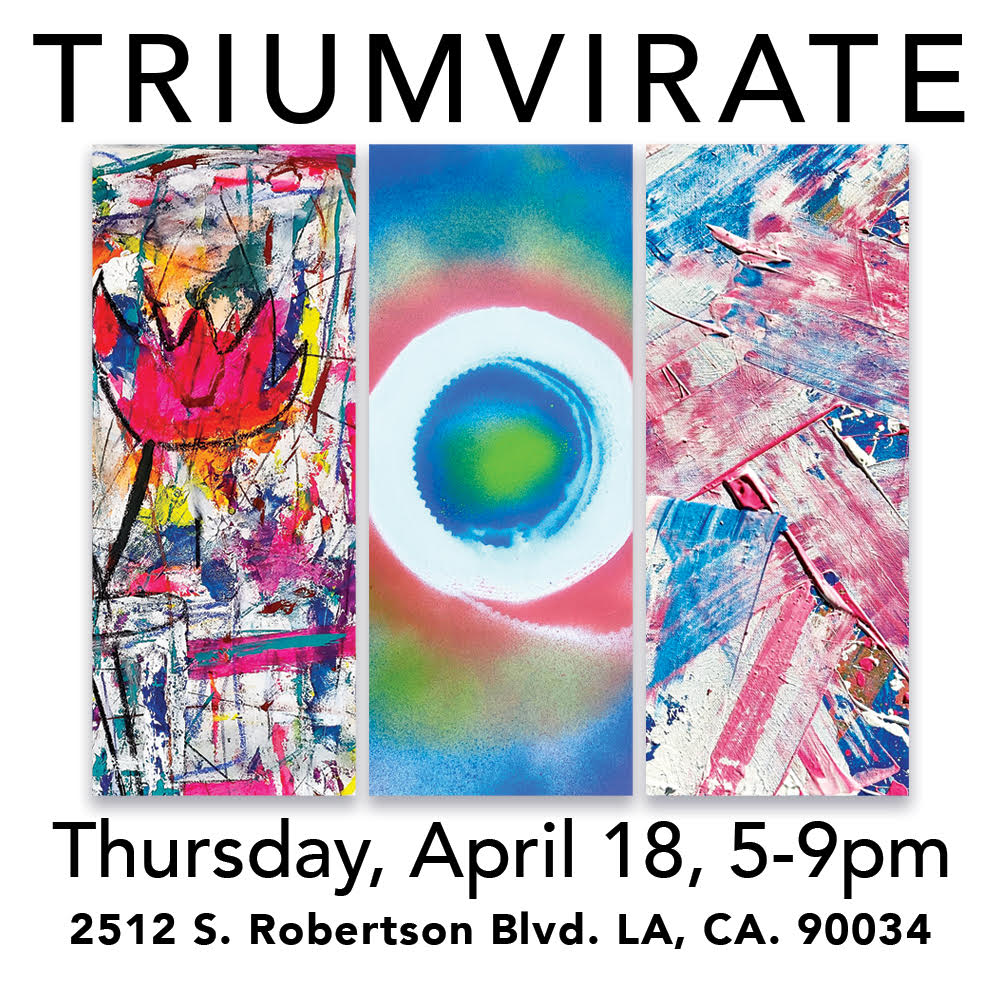
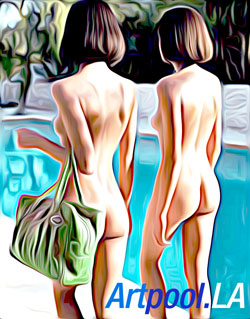

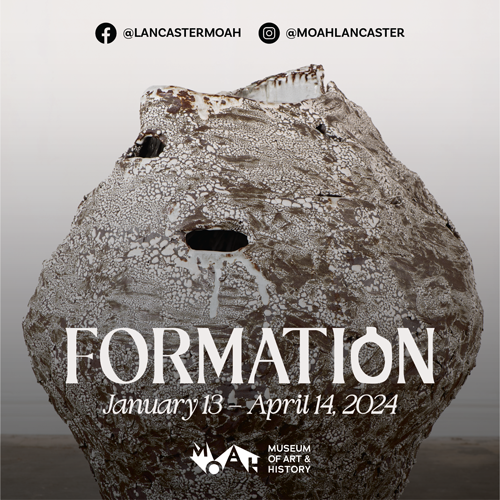


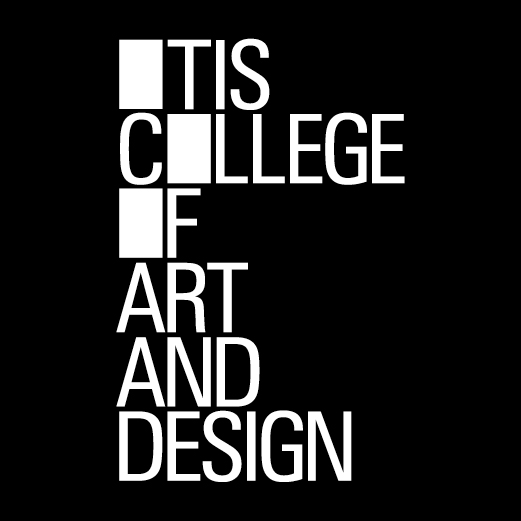
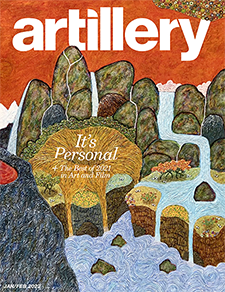
0 Comments